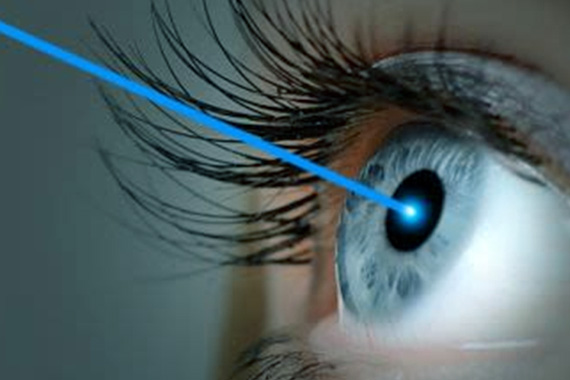LASIK (Laser-Assisted In Situ Keratomileusis) is a popular refractive eye surgery used to correct common vision problems such as myopia (nearsightedness), hyperopia (farsightedness), and astigmatism. The procedure involves reshaping the cornea, the clear front part of the eye, to improve the way light is focused onto the retina. By doing so, LASIK reduces or eliminates the need for eyeglasses or contact lenses, offering a long-term solution for those who qualify.

While LASIK itself is a corrective procedure, patients may experience certain symptoms post-surgery. Common symptoms include
Mild burning or itching sensation immediately after the procedure.
A common post-operative symptom where the eyes may feel dry and gritty.
Some patients may notice variations in vision clarity, which typically stabilizes within a few weeks.
Sensitivity to light, glare, and seeing halos around lights, especially at night.
Temporary blurriness may occur as the eyes heal and adjust to their new shape.
If any of these symptoms persist or worsen, it's important to contact your eye doctor promptly.
Consider seeing a doctor if:
Consult an eye specialist to determine if LASIK is a suitable option for your vision correction needs.
The need for LASIK arises from refractive errors, which occur when the shape of the eye prevents light from focusing directly on the retina. These errors include:
The cornea is too curved or the eyeball is too long, causing distant objects to appear blurry.
The cornea is too flat or the eyeball is too short, making close objects blurry.
The cornea or lens has an irregular shape, leading to distorted or blurred vision at any distance.
LASIK corrects these refractive errors by reshaping the cornea, allowing light to focus correctly on the retina.
There are several types of LASIK, each with different techniques to suit varying patient needs:
Involves creating a corneal flap using a microkeratome blade and reshaping the cornea with an excimer laser.
Uses a femtosecond laser to create the corneal flap instead of a blade, offering a more precise and customizable approach.
Customizes the procedure using detailed measurements of how light passes through the eye, allowing for more precise correction of refractive errors.
Uses corneal mapping technology to treat specific irregularities in the cornea, often used for more complex vision problems.
While LASIK is generally safe, certain factors may increase the risk of complications:
May increase the risk of corneal weakening post-surgery.
Patients with very high prescriptions may not achieve 20/20 vision and may require additional treatments.
Pre-existing dry eye conditions may worsen after surgery.
May increase the likelihood of seeing halos or experiencing glare at night.
Older patients may have a higher risk of developing complications such as dry eyes.
It’s crucial to discuss these risk factors with your eye doctor to determine if LASIK is right for you.
Since LASIK is an elective procedure, prevention focuses on mitigating risk factors and ensuring candidacy:
Undergo a comprehensive eye exam to assess corneal thickness, pupil size, and overall eye health.
Ensure your prescription is stable for at least one year before considering LASIK.
Treat any dry eye symptoms before surgery to reduce the risk of complications.
Maintain overall good health, manage chronic conditions, and avoid smoking to support optimal healing.
Your eye doctor will provide guidance on how to prepare for LASIK and what steps to take to minimize risks.
LASIK offers a safe and effective solution for correcting refractive errors, reducing dependence on glasses or contact lenses. Understanding the procedure, potential symptoms, risks, and preventive measures is crucial for making an informed decision. If you’re considering LASIK, consult with a qualified eye specialist to discuss your suitability and explore your options.
While Shree Ramkrishna Netralaya is your top choice for eye care in Mumbai, you may also consider our other reputable clinics and hospitals near you.
Address:
201 & 202 Elmer #Plot #563, Central Avenue, Corner of, 11th Rd, Chembur, 400071
Phone: 082917 14838
Timing: Mon-Sat- 10 a.m. To 8 p.m.
Address:
Near Risk Care Hospital, Near Makhamali Talao, LBS Marg, Thane, W, Mumbai, Maharashtra 400601
Phone: 02225441139
Timing: Mon-Sat- 11 a.m. To 8 p.m.